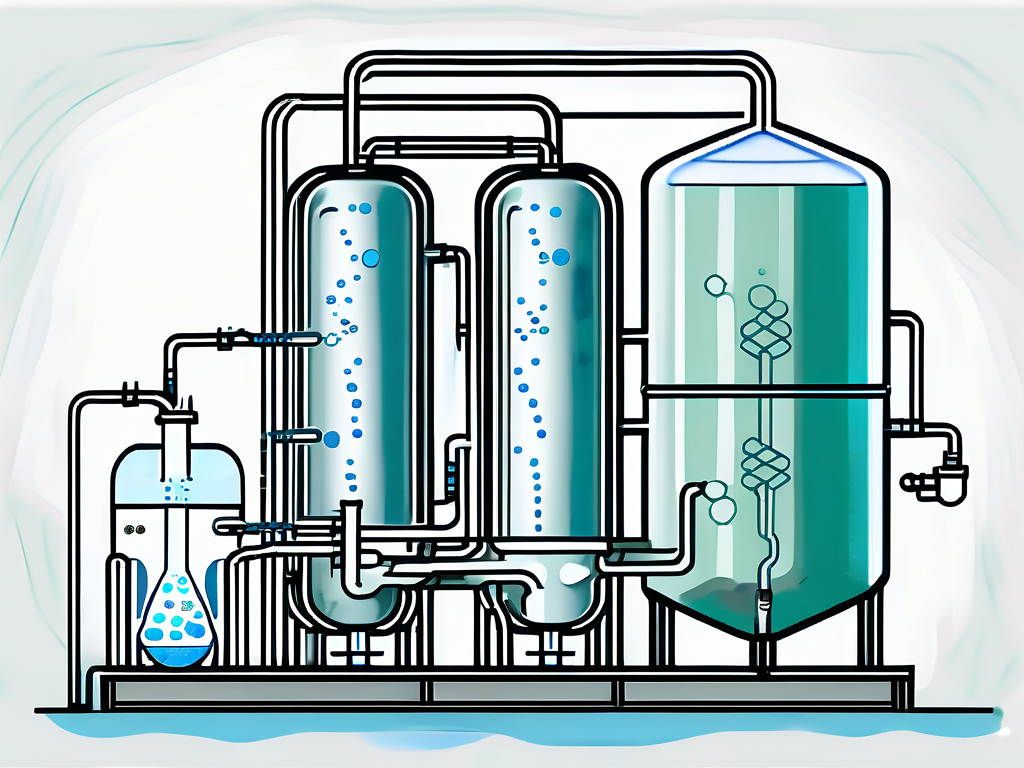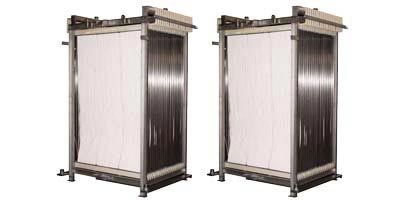The Advantages of Membrane Bioreactors in Sustainable Wastewater Management
Membrane layer bioreactors (MBRs) represent a crucial innovation in sustainable wastewater management, effectively combining biological therapy with advanced membrane purification innovation. As the demand for lasting services intensifies, discovering the diverse advantages of MBRs may reveal unforeseen implications for the future of wastewater therapy systems.
Summary of Membrane Layer Bioreactors
Membrane bioreactors (MBRs) stand for a considerable advancement in wastewater therapy technology, integrating organic deterioration with membrane purification to improve the performance of the treatment procedure. This cutting-edge system integrates the advantages of conventional turned on sludge procedures with membrane innovation, enabling enhanced solid-liquid splitting up. MBRs make use of semi-permeable membrane layers to different treated water from biomass, leading to high-quality effluent that can be recycled or securely released right into the atmosphere.
The operational layout of MBRs usually entails a bioreactor where microorganisms break down raw material, followed by a membrane system that filterings system the combined alcohol. This configuration not only lessens the impact of the therapy facility but likewise enables for greater biomass focus and lowered hydraulic retention times. Furthermore, MBRs can treating a broader series of impurities, consisting of nutrients and pathogens, making them appropriate for different applications, from local wastewater therapy to commercial effluent handling.
The integration of MBRs right into wastewater monitoring systems is a measure of an expanding fad in the direction of lasting and effective practices in ecological design. Their capacity to create top notch effluent while lessening area requirements positions MBR technology as a principal in contemporary wastewater therapy services.
Improved Effluent Quality

The membrane layer filtration procedure functions as a physical barrier, making it possible for the retention of bacteria and particulate issue, which contributes to a more clear and cleaner effluent (Membrane Bioreactor). MBRs run at higher biomass concentrations than standard triggered sludge systems, advertising much more reliable biodegradation of contaminants. This brings about a reduction in biochemical oxygen need (BOD) and overall put on hold solids (TSS) levels in the last effluent
Additionally, MBRs demonstrate superb performance in dealing with challenging wastewater structures, such as commercial effluents and wastewater with high nutrient loads. As an outcome, the effluent created is frequently of greater quality, enabling for even more flexible disposal choices and lowered environmental effect. Inevitably, the boosted effluent high quality accomplished via MBR technology highlights its essential function in progressing sustainable wastewater management methods.
Water Reuse Opportunities
The high-grade effluent generated by membrane bioreactors (MBRs) opens up considerable chances for water reuse in numerous applications. MBRs effectively remove pollutants, consisting of virus, put on hold solids, and natural issue, resulting in treated water that meets or Check This Out surpasses regulative requirements for reuse. This top quality permits for the execution of water reusing campaigns throughout varied fields.
One prominent application is in agriculture, where treated wastewater can be utilized for watering, advertising lasting farming techniques while preserving fresh water sources. Furthermore, MBR-treated effluent can be utilized for commercial processes such as cooling, cleaning, and as a process water source, significantly decreasing the demand for potable water in these procedures.
In city settings, MBRs promote the usage of recovered water for landscape irrigation, toilet flushing, and other non-potable usages, adding to the general durability of supply of water systems. Additionally, the integration of MBR technology in decentralized systems help in taking care of localized water demands, particularly in water-scarce areas.
Minimized Environmental Impact
Exactly how can the adoption of membrane bioreactors (MBRs) add to a minimized environmental influence in wastewater monitoring? MBRs considerably enhance the therapy performance of wastewater while reducing eco-friendly disruptions. By integrating biological treatment procedures with membrane purification, MBRs successfully remove a large range of toxins, including natural matter, nutrients, and virus. This sophisticated filtration results in higher-quality effluent, which is crucial for securing aquatic ecological communities and decreasing the worry on natural water bodies.
Moreover, MBRs run at lower hydraulic retention times compared to traditional systems, causing smaller treatment plant impacts. This portable design decreases land usage, therefore preserving natural environments and biodiversity. The procedure additionally generates less sludge than standard approaches, mitigating disposal challenges and reducing greenhouse gas discharges linked with sludge administration.
In addition, MBRs facilitate the recovery of important sources, such as water and nutrients, adding to a round economic situation. By making it possible for water reuse for irrigation or industrial processes, MBRs help reduce freshwater shortage, therefore promoting lasting water utilize techniques. Inevitably, the fostering of MBR technology stands for a significant stride towards minimizing the environmental impact of wastewater management systems.
Economic Advantages of MBRs

Furthermore, MBRs facilitate the manufacturing of high-quality effluent, which can be recycled for numerous applications, such as farming irrigation and industrial procedures - Membrane Bioreactor. This reuse ability can substantially reduce water procurement prices, supplying a monetary find out here now incentive for sectors encountering rigid water policies
The compact layout of MBR systems likewise results in lowered land demands, which is particularly valuable in city areas where realty is pricey. By reducing space, districts and markets can reduce land procurement and maintenance expenses.
Additionally, MBRs typically require much less frequent upkeep and have a longer lifespan than typical systems, even more adding to cost financial savings. In summary, the financial advantages of MBRs-- varying from reduced functional prices to land financial savings and effluent reuse-- make them an engaging choice for lasting wastewater monitoring, offering both immediate and lasting economic benefits.
Final Thought
Membrane bioreactors stand for a transformative strategy to sustainable wastewater administration, incorporating organic therapy with advanced membrane filtering for premium effluent top quality. Their capacity for effective pollutant removal assists in water reuse, therefore conserving important freshwater resources. Furthermore, MBRs contribute to minimized ecological influences via portable layouts and reduced sludge generation. Economic benefits better boost their viability, making MBRs a promising solution for dealing with the challenges of wastewater treatment and promoting browse around this web-site sustainable source monitoring.
Membrane bioreactors (MBRs) stand for a crucial improvement in sustainable wastewater management, effectively combining biological treatment with innovative membrane layer filtration technology.Membrane bioreactors (MBRs) stand for a considerable advancement in wastewater therapy innovation, integrating organic deterioration with membrane purification to improve the efficiency of the therapy process.Attaining improved effluent quality is one of the most significant advantages of utilizing membrane layer bioreactors (MBRs) in wastewater treatment.Additionally, MBRs show outstanding efficiency in treating tough wastewater compositions, such as commercial effluents and wastewater with high nutrient loads.Incorporating membrane bioreactors (MBRs) right into wastewater monitoring not just decreases ecological effect yet likewise offers considerable financial advantages.
Comments on “Troubleshooting Common Issues with Membrane Bioreactor Systems”